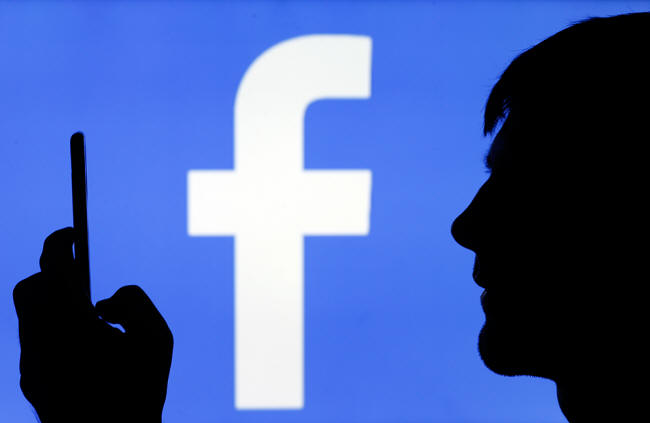|

by Kate Cox
September
24, 2020
from
ArsTechnica Website

"At worst,
I fear we are
pushing ourselves
to the brink of
a civil war,"
added the former
Employee...
Former
Facebook manager - "We took a page from Big Tobacco's playbook"
Speaking to Congress today, the former
Facebook manager first tasked with
making the company make money did not mince words about his role.
He told lawmakers that
the company,
"took a page from Big
Tobacco's playbook, working to make our offering addictive at
the outset" and arguing that his former employer has been hugely
detrimental to society.
Tim Kendall, who served as
director of monetization for Facebook from 2006 through 2010,
spoke to Congress today as part of a House Commerce subcommittee
hearing examining how social media platforms contribute to the
mainstreaming of extremist and radicalizing content.
"The social
media services that I and others have built over the past 15
years have served to tear people apart with alarming speed and
intensity," Kendall said in
his opening testimony.
"At the very
least, we have eroded our collective understanding - at worst, I
fear we are pushing ourselves to the brink of a civil war."
As director of
monetization, he added,
"We sought to
mine as much attention as humanly possible... We took a page
form Big Tobacco's playbook, working to make our offering
addictive at the outset."
His analogy
continued:
Tobacco
companies initially just sought to make nicotine more potent.
But eventually
that wasn't enough to grow the business as fast as they wanted.
And so they added sugar and menthol to cigarettes so you could
hold the smoke in your lungs for longer periods.
At Facebook, we
added status updates, photo tagging, and likes, which made
status and reputation primary and laid the groundwork for a
teenage mental health crisis.
Allowing for
misinformation, conspiracy theories, and fake news to flourish
were like Big Tobacco's bronchodilators, which allowed the
cigarette smoke to cover more surface area of the lungs.
But that
incendiary content alone wasn't enough.
To continue to
grow the user base and in particular, the amount of time and
attention users would surrender to Facebook, they needed more.
Engagement leads to
profits, and so engagement with content is everything, Kendall later
expanded in response to questions, adding that "engagement" was the
metric that drove all Facebook decisions when he was at the company,
and he assumes that's still true today.
"We initially
used engagement as sort of a proxy for user benefit,"
Kendall explained.
"But we also
started to realize that engagement could also mean [users] were
sufficiently sucked in that they couldn't work in their own best
long-term interest to get off the platform...
We started to
see real-life consequences, but they weren't given much weight.
Engagement always won, it always trumped."
"There's no
incentive to stop [toxic content] and there's incredible
incentive to keep going and get better," Kendall said.
"I just don't
believe that's going to change unless there are financial,
civil, or criminal penalties associated with the harm that they
create.
Without
enforcement, they're just going to continue to be embarrassed by
the mistakes, and they'll talk about empty platitudes... but I
don't believe anything systemic will change... the incentives to
keep the status quo are just too lucrative at the moment."
Growing sentiment
Kendall is far from
the only former Facebook employee now to be expressing regret for
his former work and staking out a stance against the company.
Others, too, have
concluded that Facebook is long overdue for some kind of regulation
or external enforcement push.
Facebook co-founder
Chris Hughes last year
published a lengthy op-ed calling for regulators to break up the
company.
Facebook CEO
Mark Zuckerberg "is a good, kind person," Hughes wrote at
the time.
"But I'm angry
that his focus on growth led him to sacrifice security and
civility for clicks... The government must hold Mark
accountable.
It is time to
break up Facebook."
A few weeks later,
Hughes took that message
on a tour through Washington, meeting with,
-
members of
Congress
-
the Justice
Department's Antitrust Division
-
the Federal
Trade Commission
-
the office
of New York Attorney General Letitia James,
...to
make a detailed case against Facebook.
Several other
lower-ranking Facebook employees quit publicly this year, calling on
Facebook to do better by society.
Software engineer
Timothy Aveni
resigned in June, explicitly citing Facebook's failure to act on
an inflammatory statement by President Donald Trump that
strongly implied a call for violence against protestors.
"I've spent a
lot of time trying to understand and process the decision not to
remove the racist, violent post Trump made Thursday night, but
Facebook, complicit in the propagation of weaponized hatred, is
on the wrong side of history," Aveni wrote.
Hundreds of
Facebook employees
staged a virtual walkout protesting the company's inaction the
day before Aveni resigned.
Many at the time
also posted
rare, public disagreements with Facebook and its CEO to other
platforms, such as Twitter.
"Facebook's
inaction in taking down Trump's post inciting violence makes me
ashamed to work here," one wrote.
In September,
another software engineer, Ashok Chandwaney,
also resigned publicly, citing similar reasons to Aveni.
"I can no
longer stomach contributing to an organization that is profiting
off hate in the US and globally," Chandwaney wrote.
"It is clear to
me that despite the best efforts of many of us who work here,
and outside advocates like Color Of Change, Facebook is choosing
to be on the wrong side of history."
In response to
employee allegations and
an advertiser boycott, Facebook's
company line all summer was,
"We don't
profit from hate",
...directly
contradicting what Hughes, Kendall, and other former Facebook
insiders have said about the company.
|


